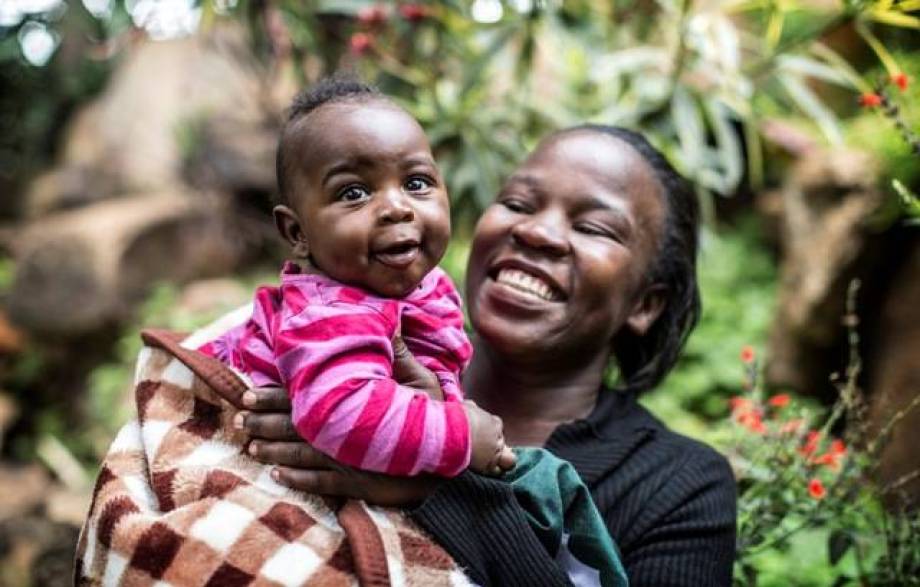Maternal health remains a critical issue worldwide, with maternal mortality reflecting the significant disparities in healthcare access and quality. According to the World Health Organization (WHO), approximately 295,000 women died during and following pregnancy and childbirth in 2017, with the vast majority of these deaths occurring in low-resource settings. Addressing maternal health is directly linked to Sustainable Development Goal (SDG) 3, which aims to ensure healthy lives and promote well-being for all at all ages, with a specific target to reduce the global maternal mortality ratio to less than 70 per 100,000 live births by 2030.
The State of Maternal Health in Africa and the Middle East
In Africa and the Middle East, maternal mortality rates are alarmingly high. Sub-Saharan Africa alone accounts for nearly two-thirds of global maternal deaths. According to the World Bank, in 2017, the maternal mortality ratio in Sub-Saharan Africa was 542 per 100,000 live births, while the ratio in the Middle East and North Africa was 78 per 100,000 live births. Despite some progress, these regions still face significant challenges that impede further reductions in maternal mortality.
Key Factors Contributing to High Maternal Mortality
Lack of Access to Quality Healthcare: Many women in these regions do not have access to skilled health professionals during childbirth. The WHO reports that only 59% of births in sub-Saharan Africa are attended by skilled health personnel.
Poverty and Socioeconomic Inequalities: Economic barriers prevent many women from seeking and receiving adequate maternal care. The United Nations Population Fund (UNFPA) highlights that poverty exacerbates the risks of maternal mortality as it limits access to nutritious food, clean water, and necessary medical services.
Cultural Practices and Gender Inequality: Cultural beliefs and practices, coupled with gender inequality, often restrict women’s access to healthcare services. UN Women notes that gender-based violence and child marriage also contribute significantly to maternal health issues.
Inadequate Health Infrastructure: Many health facilities in Africa and the Middle East lack the necessary equipment, supplies, and trained personnel to handle complications during pregnancy and childbirth.
Organizations Making a Difference
Numerous organizations are actively working to improve maternal health and reduce maternal mortality in these regions. Their efforts are crucial in addressing the multifaceted challenges that contribute to high maternal mortality rates.
World Health Organization (WHO): WHO implements various programs aimed at improving maternal and neonatal health. These include training healthcare workers, improving health infrastructure, and promoting policies that enhance maternal health services.
United Nations Population Fund (UNFPA): UNFPA focuses on ensuring that every pregnancy is wanted, every childbirth is safe, and every young person’s potential is fulfilled. Their initiatives include providing reproductive health services, supporting midwifery training programs, and advocating for women’s health rights.
Save the Children: This international NGO works on multiple fronts to reduce maternal and child mortality. In Africa and the Middle East, Save the Children implements programs that provide prenatal and postnatal care, train health workers, and improve healthcare facilities.
The Bill & Melinda Gates Foundation: The foundation invests significantly in maternal and child health, supporting initiatives that aim to reduce maternal mortality through better health services, improved nutrition, and increased access to family planning.
Maternal Health Task Force: Based at the Harvard T.H. Chan School of Public Health, this organization works to improve global maternal health by promoting research, advocacy, and policy development. Their projects often target high-burden regions like Africa and the Middle East.
The Role of Philanthropy and Social Impact Organizations
Philanthropists and social impact organizations play a vital role in advancing maternal health. By funding healthcare initiatives, supporting research, and advocating for policy changes, these entities help bridge the gap in maternal health services.
The Hestian Foundation: Focuses on maternal health projects in Sub-Saharan Africa, funding mobile clinics and community health programs that provide essential maternal and child healthcare services.
Every Mother Counts: Founded by Christy Turlington Burns, this non-profit organization invests in programs that improve access to quality maternal healthcare in under-resourced communities worldwide, including Africa and the Middle East.

A Path Forward
To significantly reduce maternal mortality in Africa and the Middle East, a concerted effort involving governments, international organizations, NGOs, philanthropists, and local communities is essential. Key strategies include:
Strengthening Healthcare Systems: Investing in health infrastructure, ensuring the availability of essential medical supplies, and training skilled health professionals.
Enhancing Education and Awareness: Promoting education about maternal health, encouraging community-based interventions, and addressing cultural practices that hinder women’s access to care.
Supporting Policy and Advocacy: Advocating for policies that prioritize maternal health, enhance healthcare funding, and address socioeconomic determinants of health.
Promoting Gender Equality: Empowering women through education, economic opportunities, and legal protections to ensure they have the resources and support necessary for healthy pregnancies and safe childbirth.
As we strive towards achieving SDG 3, it is crucial to remember that every maternal death is preventable. By working together and leveraging the strengths of various stakeholders, we can ensure that no mother dies giving life, ultimately creating a healthier, more equitable world.